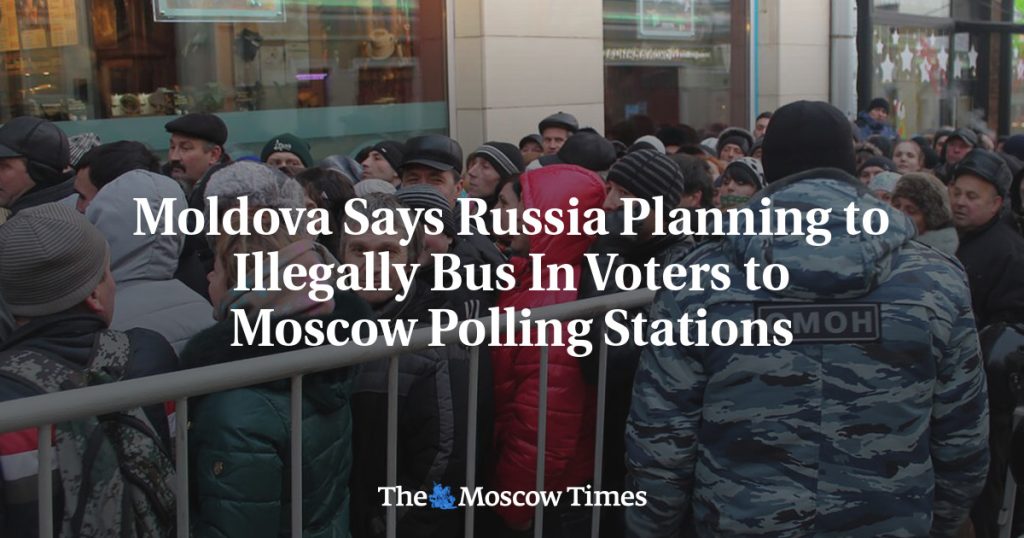Moldovan authorities have raised concerns about potential interference in the country’s upcoming presidential election and referendum on joining the EU by Russia. They claim that Russia is planning to bus in voters to polling stations at the Moldovan Embassy in Moscow with the intention of creating the impression of overcrowding. The Foreign Ministry of Moldova called on Russian authorities and other parties to refrain from actions that could disrupt the electoral process through illegal means or artificial means of creating crowds at polling stations. The upcoming election is crucial, as voters in Moldova and its diplomatic missions will choose the next president and vote on amending the constitution to make joining the EU an official aspiration.
The run-up to the election has been marred by allegations of a large vote-buying scheme reportedly coming from Russia and linked to fugitive businessman and former politician Ilan Shor. Shor, who lives in Russia, was convicted of fraud in absentia last year. The EU imposed sanctions on five individuals and one entity in response to the alleged Russian interference, which Kremlin has denied. Additionally, the White House has accused Russia of spending “millions of dollars” to finance its preferred parties and spread disinformation on social media. Despite these challenges, Moldova received significant financial support from the EU, with an announcement of 1.8 billion euros in financial aid last week.
The Russian Foreign Ministry spokeswoman, Maria Zakharova, criticized Moldovan authorities for printing only 10,000 ballots for 500,000 Moldovans living and working in Russia who are eligible to vote. It is unclear how many of these Russia-based Moldovans are registered to vote in the upcoming election and referendum. The continued tensions between Moldova and Russia highlight the complex political landscape in the region. With ongoing accusations of interference and manipulation, the integrity of the electoral process is called into question. The allegations of vote-buying and foreign influence raise concerns about the credibility of the election results and the ability of Moldova to make independent decisions regarding its future.
The Kremlin has denied any meddling in Moldova’s electoral process, despite the accusations and concerns raised by Moldovan authorities. The upcoming presidential election and referendum hold significant implications for the future direction of Moldova, particularly in terms of its relationship with the EU and Russia. As tensions escalate and accusations continue to surface, it remains to be seen how the situation will unfold and what impact it will have on Moldovan politics. The EU’s support for Moldova and the imposition of sanctions on individuals allegedly involved in vote-buying schemes demonstrate a commitment to upholding democratic values and ensuring fair and transparent elections in the region. The international community will be closely monitoring the developments in Moldova leading up to the election and referendum.
The dispute between Moldova and Russia underscores the broader geopolitical tensions in the region and the competing interests at play. Moldova’s efforts to align itself with the EU, while facing allegations of interference from Russia, pose significant challenges for the country’s democratic process. The accusations of vote-buying, disinformation campaigns, and potential manipulation of the electoral process raise concerns about the integrity of Moldova’s democratic institutions and the ability of its citizens to make informed decisions. As the election approaches, the spotlight will be on Moldova and the steps taken to ensure a free and fair electoral process. The outcome of the election and the referendum will have far-reaching implications for Moldova’s future and its relationship with both Russia and the EU.


